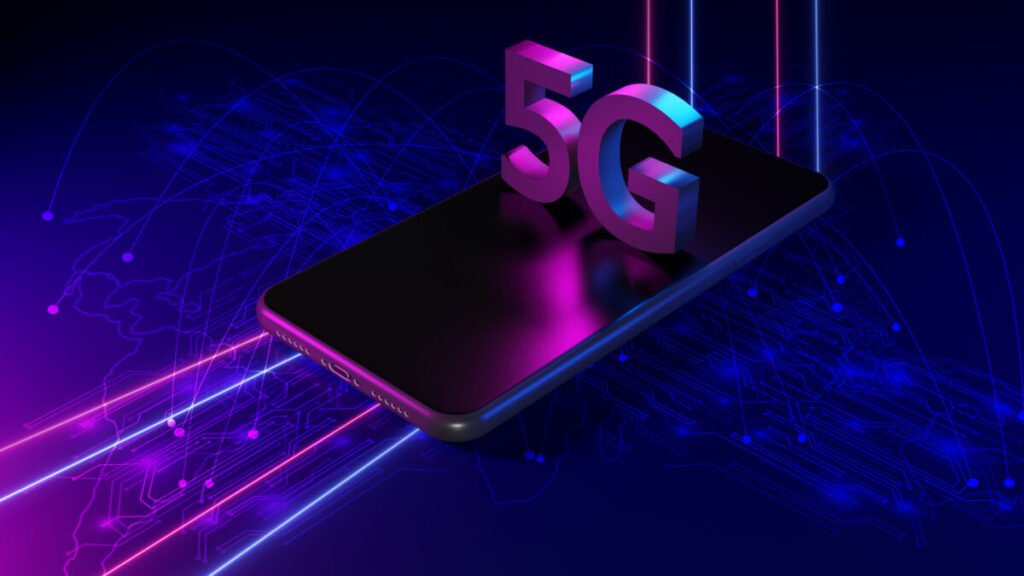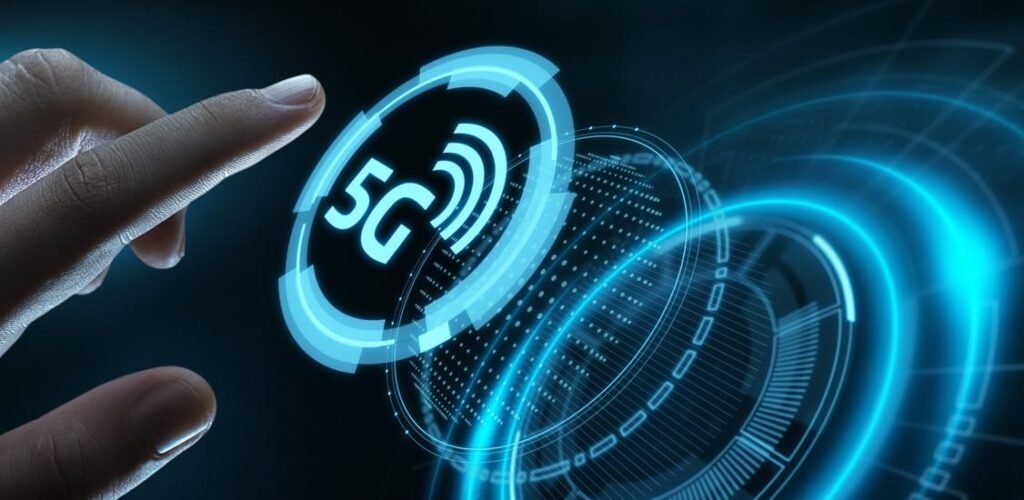5G Technology: The Next Frontier in Connectivity
In the ever-evolving world of telecommunications, the transition from 4G to 5G technology is one of the most talked-about advancements in recent years. Promising faster internet speeds, low latency, and the ability to connect billions of devices seamlessly, 5G is not just a mere improvement over its predecessor, 4G. It is a game-changer with the potential to transform industries, economies, and even our day-to-day lives. In this article, we’ll explore what 5G technology is, its benefits, its challenges, and how it’s poised to revolutionize the digital landscape. Check out the 5G Technology: Revolutionizing Connectivity and Speed at Get Info For All.

What is 5G Technology?
5G is the fifth generation of mobile network technology, succeeding the 4G network. While 4G allowed us to stream high-definition videos, browse the internet quickly, and make video calls, 5G promises to take these capabilities to the next level, offering enhanced speed, coverage, and connectivity. It utilizes a higher frequency of radio waves, which allows it to transmit data at much faster speeds compared to 4G, potentially up to 100 times faster.
The 5G network operates across three distinct bands: low, mid, and high bands. Each band has different speeds and ranges. The low band offers broad coverage but lower speeds, while the high band (often referred to as millimeter waves) offers faster speeds but with limited range. The mid-band strikes a balance between speed and coverage. This multi-tiered structure enables 5G to offer ultra-fast speeds and reliable connections across various environments.
Key Features of 5G Technology
- Super-Fast Speeds
One of the most exciting features of 5G is its incredible speed. With download speeds potentially reaching up to 10 Gbps, it makes 4G speeds look sluggish in comparison. This could revolutionize sectors such as media and entertainment, where consumers can download entire HD movies or massive files in a matter of seconds. Gamers will also benefit from seamless streaming and virtually zero lag during online gaming sessions. - Low Latency
Latency refers to the delay between sending a command and the network responding. 5G drastically reduces this latency to as low as one millisecond, compared to around 30 milliseconds with 4G. This low latency is crucial for applications like remote surgery, autonomous vehicles, and virtual reality (VR), where real-time communication is essential. The reduced delay means smoother, more instantaneous interactions, which are key to unlocking the full potential of these innovative technologies. - Increased Connectivity
The world is becoming increasingly connected, with billions of IoT (Internet of Things) devices, from smart thermostats to wearable health monitors, being used in homes and industries. 5G is designed to handle the massive influx of connected devices by offering higher bandwidth and supporting up to one million devices per square kilometer. This will create smarter cities, where everything from traffic lights to waste management systems connects, monitors, and optimizes in real-time. - Improved Capacity
5G offers better capacity and can handle more traffic than 4G networks. This is especially important in crowded areas like stadiums, concerts, or city centers, where many people are trying to connect to the internet at once. With 5G, you’ll experience fewer slowdowns or connection drops in high-density environments.
The Benefits of 5G Technology
The rollout of 5G brings a host of potential benefits, far beyond just faster mobile internet. Let’s look at how different sectors stand to gain:
- Healthcare
5G technology has the potential to revolutionize the healthcare industry by enabling telemedicine, remote surgeries, and real-time monitoring of patients. With 5G’s low latency, surgeons can perform remote operations with precision, while doctors can monitor patients’ health data in real-time through connected devices, making healthcare more accessible and efficient. - Smart Cities
As cities grow more congested and complex, 5G will serve as the backbone for smart city technologies. Real-time traffic monitoring, intelligent public transport systems, and efficient energy management are all possible with 5G’s ability to handle vast amounts of data. It can enable urban areas to become more sustainable, efficient, and livable. - Autonomous Vehicles
The development of self-driving cars relies heavily on low latency and high bandwidth, both of which are supported by 5G. Autonomous vehicles require constant communication with nearby vehicles, road infrastructure, and cloud data centers to navigate safely. With 5G, these cars can exchange data nearly instantaneously, making them safer and more reliable. - Manufacturing and Industry 4.0
5G will usher in a new era of smart factories, where machines and robots communicate in real-time. With enhanced reliability and capacity, industrial automation, augmented reality (AR), and predictive maintenance systems can become a reality, making manufacturing processes more efficient and reducing downtime. - Entertainment and Media
Streaming services will be enhanced by 5G’s high speeds and low latency. In addition to smoother streaming, users will be able to enjoy ultra-high-definition content, including 8K video. The gaming industry will also benefit, with the possibility of cloud gaming becoming more mainstream, allowing players to enjoy console-quality games on mobile devices.
Challenges of 5G Technology
Despite its promising potential, 5G comes with its own set of challenges:
- Infrastructure Requirements
5G requires a more extensive and dense network of antennas and base stations than 4G. This is because 5G uses higher frequency signals that don’t travel as far and can buildings or trees obstruct. To achieve full 5G coverage, companies need to install many more small cell stations, which requires significant investment and urban planning. - Security Concerns
With the massive increase in connected devices, there are concerns about the security of 5G networks. The vast number of entry points in a 5G-enabled ecosystem could potentially make it more vulnerable to cyberattacks. Governments and private companies will need to invest heavily in securing the network, particularly as more critical infrastructure and personal data are transmitted over it. - Device Compatibility
To take advantage of 5G, users will need devices that support the new technology. This means upgrading smartphones, tablets, and other devices, which could be an expensive proposition for many consumers. Furthermore, not all areas will have 5G coverage immediately, meaning that consumers in some regions will have to wait for the network to expand. - Health Concerns
While there is no conclusive evidence that 5G poses a significant health risk, some people have expressed concerns about the potential long-term effects of increased exposure to radio frequency radiation. Ongoing research and regulation will be crucial in addressing these concerns as the technology continues to roll out.
The Future of 5G
As 5G networks continue to expand globally, we can expect an increasing number of industries and sectors to adopt and integrate the technology into their operations. The full potential of 5G may not be realized for several years, as infrastructure continues to be developed and more devices become compatible. However, the impact it will have on communication, entertainment, transportation, and even healthcare is undeniable.
The next few years will see an acceleration in the rollout of 5G, with even more innovative applications emerging. From augmented and virtual reality to breakthroughs in artificial intelligence and machine learning, 5G will enable the technology of the future. Check out the 5G Technology: Revolutionizing Connectivity and Speed at Get Info For All.

Conclusion
5G is not just a faster network; it is a transformative technology with the potential to reshape the way we live, work, and interact with the world around us. While the challenges associated with its rollout are not insignificant, the benefits it brings to society are far-reaching. As we move into a more connected, digital future, 5G will undoubtedly play a central role in powering the innovations of tomorrow. Check out the 5G Technology: Revolutionizing Connectivity and Speed at Get Info For All.
At Get Info For All, we aim to keep you informed about the latest tech developments, and with 5G on the horizon, it’s clear that the digital revolution is only just beginning. Stay tuned as we continue to cover the evolving landscape of mobile technology and its far-reaching impact on our lives. Check out the 5G Technology: Revolutionizing Connectivity and Speed at Get Info For All.


